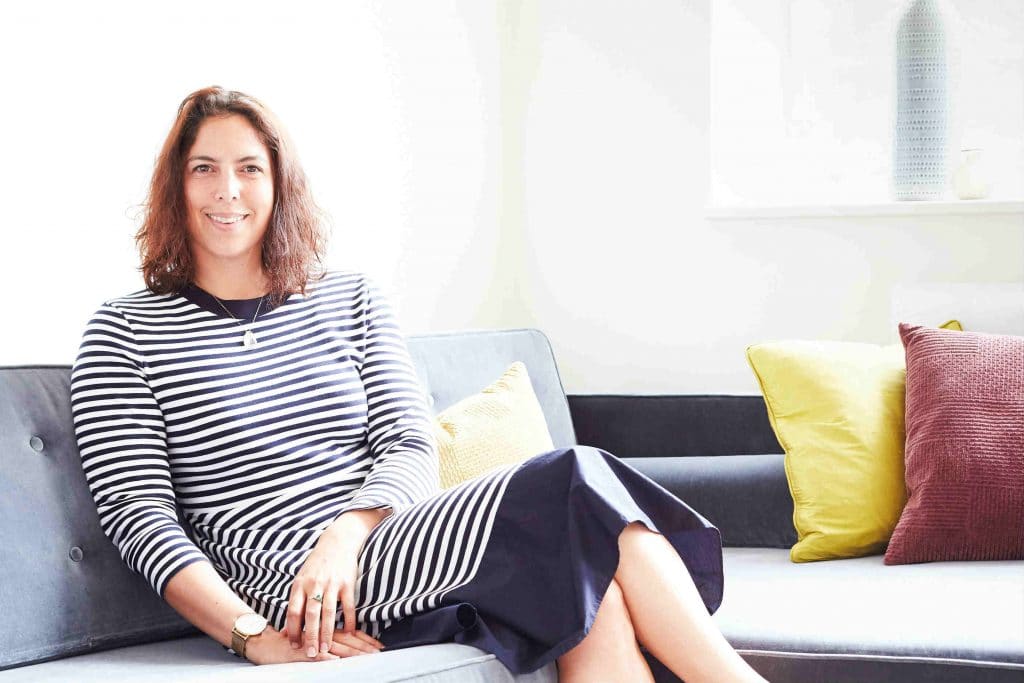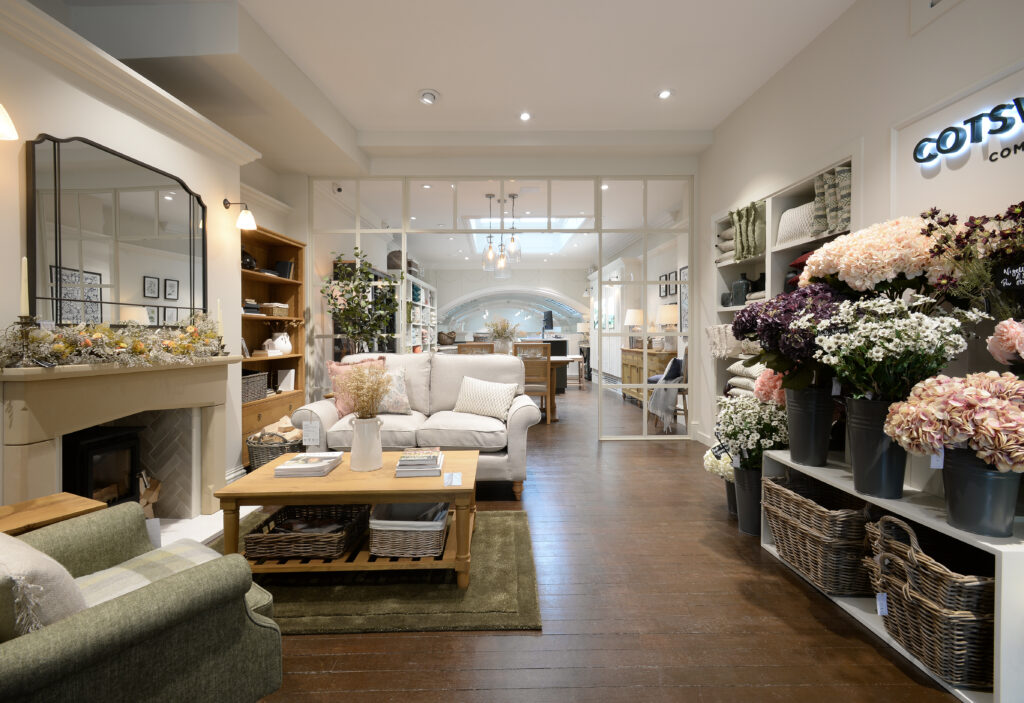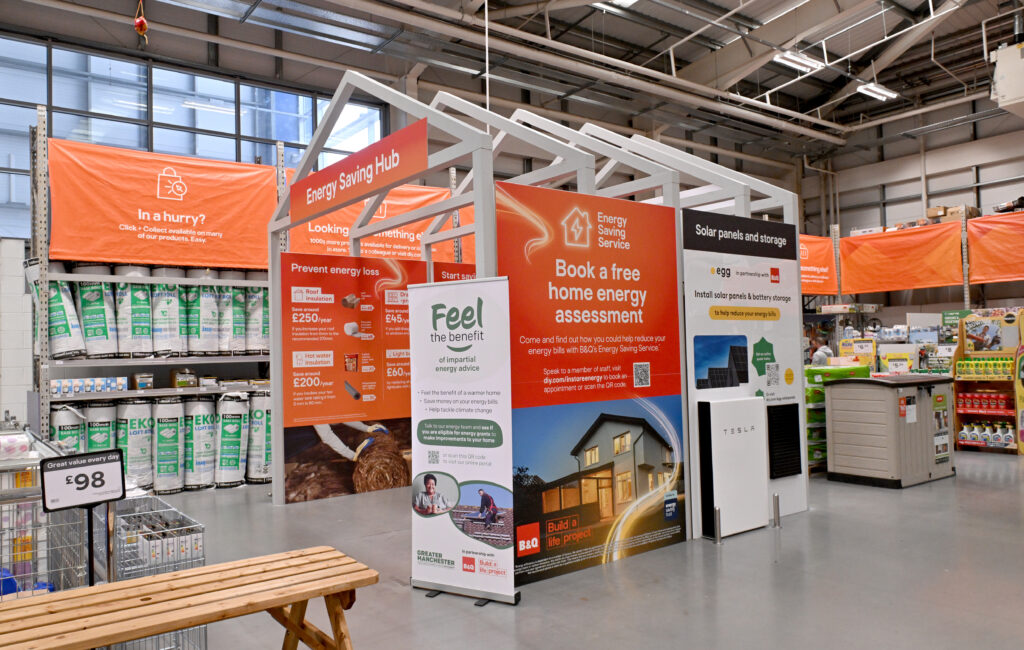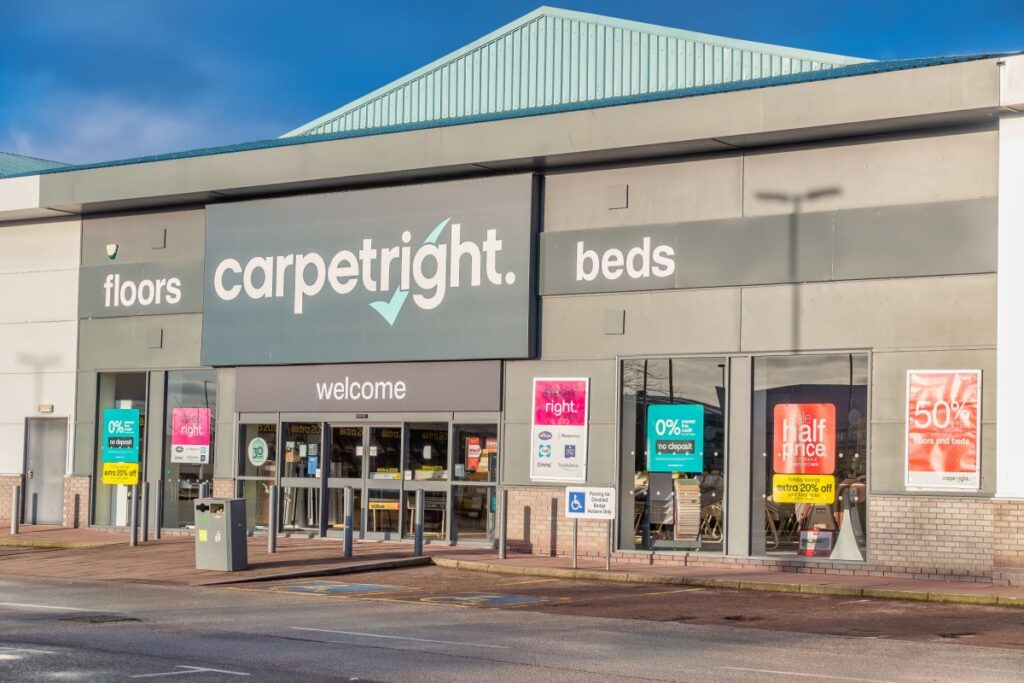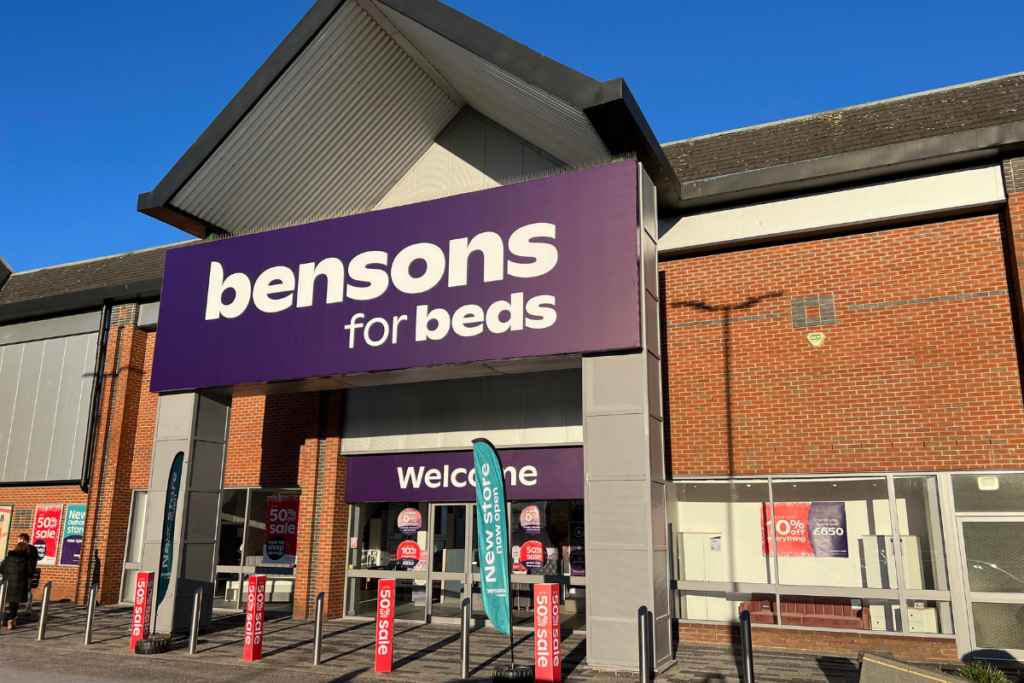Tell me about the Swoon story.
Like most ideas, Swoon came about because of a problem: the high cost of well-designed furniture. After taking a career break and heading on a gap year in my mid-30s, I decided I wanted to turn my passion for interiors into a business.
While I was in India, I spotted a chair in a market for a fraction of the cost of the same chair that I’d been coveting online months before and I realised I’d found a niche. The middleman was ramping up the costs of furniture, and I realised you could avoid that. Without a warehouse or expensive overheads like shops, it would be possible to deliver quality furniture direct to customers from the suppliers.
Back in the UK, I met up with Brian Harrison, a former colleague from my time at the Telegraph Group and we discussed business ideas. With a few options on the table, we kept coming back to furniture and within six months we had launched Swoon. I went back to India on the hunt for suppliers, and didn’t leave until I had our first contract signed by a supplier we still work with today.
There’s an increasing number of furniture and home design retailers emerging online – do you think there’s a reason behind this trend?
We should expect to see all types of goods and services have an ever increasing presence online. Understanding what your online presence is and how it fits with a store or physical presence is key. There is no one-size-fits-all approach any more.
What gap in the UK retail market does Swoon strive to address?
For us, it’s about distinctive design at an accessible price. We’re advocates for people who believe that home is a sanctuary and has the power to impact our health and happiness. Our customers are stylish and savvy professionals who are home-obsessed, and our aim is to provide them with the best possible design for the best possible price.
“Without a warehouse or expensive overheads like shops, it would be possible to deliver quality furniture direct to customers from the suppliers”
How is Swoon’s business model different to its main competitors?
Swoon’s business model helps to fulfil the interior desires of customers. Our fast and responsive design process enables us to launch new designs every day, initially in a small batch. And our direct-to-consumer brand, without the traditional retail overheads, ensures our designs are not only distinctive but affordable, too.
Testing is in our DNA – we use real-time sales data to test demand very quickly and then scale production on only the most popular pieces. Around 80 per cent of our product designs come from our talented in-house design team, but we’re working towards 100 per cent in the next year.
What’s in store for Swoon for the rest of 2018?
After the success of our space in the Westfield White City store, we’re evolving our partnership with Debenhams. The wheels are in motion to launch in 10 more sites across the UK, which gives a whole new group of customers the chance to discover Swoon, as well as giving existing customers a chance to see their favourite pieces in real life.
Our website experience is something we’re constantly trying to elevate and we’re investing heavily in our tech team – ultimately this impacts the level of service we’re able to offer our customers, which is always of the utmost importance.
We’re also planning several new category launches that expand on our homeware offering – we can’t say too much just yet, but they will launch in time for Christmas and open up a new price range offering for us.
How is Swoon addressing some of the challenges facing the retail industry as a whole?
We look to innovation in industries outside of retail and in particular to technology. For instance, look at the rate of innovation in the fintech industry – particularly how new entrants to the market are disrupting the status-quo and responding to customer needs that have long been ignored. Starting with a blank sheet of paper when approaching business problems is part of our ethos and has been since inception.
What would you say is the biggest risk for the retail sector, given the current climate?
We prefer to think of the landscape changing, which opens up opportunities. The challenge is responding to those opportunities well and in a timely manner.
Customer expectations continue to evolve at a rapid pace and will dictate how businesses need to innovate to meet those expectations. The future is bright if you are open to rapid change and have a business model which can accommodate that.
“Customer expectations continue to evolve at a rapid pace and will dictate how businesses need to innovate to meet those expectations”
Tell us a bit about yourself and your background.
I’ve always been an extremely driven person, both in my career and my personal life. Growing up, I really did learn that if you want something, you absolutely can go out and get it and I owe a lot of that to my parents. I’ve been lucky to inherit a great combination of traits from them – creativity and the ability to hustle from my dad, stamina and resilience from my mum.
I’ve never been intimidated to ask for something I want and I’m also prepared to do whatever it takes to achieve something important. After I graduated, I did just that – I flew out to Australia and got myself a job in an advertising agency in Sydney. My experience there eventually lead to a role as an account director for M&C Saatchi, where I worked across a range of sectors from banking to fashion.
From M&C Saatchi, I then went on Telegraph Group, which is where I met Brian. My role involved creating ecommerce initiatives from nothing and executing them quickly – this solidified my belief in my philosophy to “act fast” and has stood me in good stead throughout the past six years of Swoon.
What got you into retail in the first place?
My passion for design and interiors mainly, but also my frustration at the inflated cost of quality furniture. Brian had experienced a similar frustration while looking for furniture for his new house, and along with his passion for revolutionising retail, Swoon was born.
We wanted to remove the barriers and cost associated with buying furniture by eliminating the expensive overheads like shops and warehouse space, the aim was to give customers designs that we knew they wanted to buy by constantly looking at real time sales data and tweaking our offering based on that.
My enjoyment comes from enabling people to create beautiful spaces at affordable prices. Somewhere that feels safe, cosy, relaxed and inspired is so important for wellbeing.
How has your previous experience aided your current job?
I’ve always been the middle person, trying to figure out a solution. Whether that was between a client and a creative team in an agency, or between commercial and editorial in a media company. I had to figure out how to deliver something that really added value to the customer and still made money – it’s no different now.
What is the most challenging aspect of your job?
“We wanted to remove the barriers and cost associated with buying furniture by eliminating the expensive overheads like shops and warehouse space”
Prioritising which good ideas to work on first can be a challenge. There’s always going to be so much that we want to work on but it’s important to figure out where our focus should be, and what adds most value to the business.
Keeping the Swoon culture that has been part of the company since our early days can also be a challenge. As we continue to grow at a fast pace, it’s something we have to be very aware of and continually reassess.
And the most rewarding?
It’s always exciting to see one of our designs taking pride of place in a home – we get tagged in hundreds of customer photos on our social media every week, and often see the same people adding new Swoon pieces to their collection. Seeing the unique and distinctive ways that people style the same piece of furniture still gives me a buzz.
What advice would you give someone who is considering embarking on a career in retail?
Forget a business plan and have confidence in what you’re doing. It’s more important to verify that you have a market in the early stages – develop a prototype and test. If you find there’s an appetite for it, build a proposition from there.
Choosing the right partner is also important. Running a business is never going to be easy, so having someone you can communicate with when things get tough is essential. Teaming up with someone who can offer a slightly different skill set to you is also a huge bonus. As the saying goes, “two heads are better than one”. If I’d launched the business on my own, I would have only been able to take it so far alone.
On an individual level, I’d also recommend sketching out your own one-page plan; don’t wait for someone to give you one. Define who you want to be, your goals and the actions you need to take to achieve them.
Click here to sign up to Retail Gazette‘s free daily email newsletter

